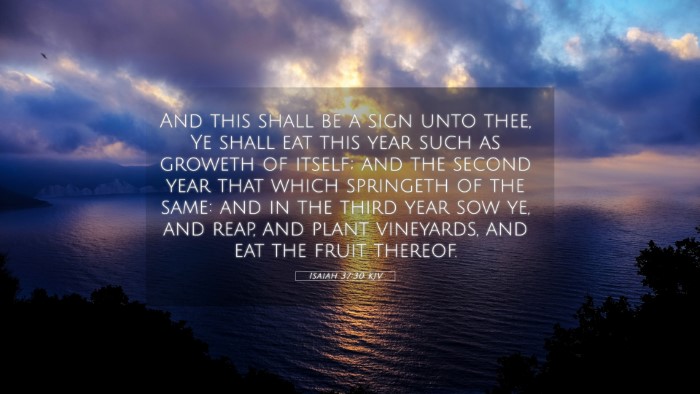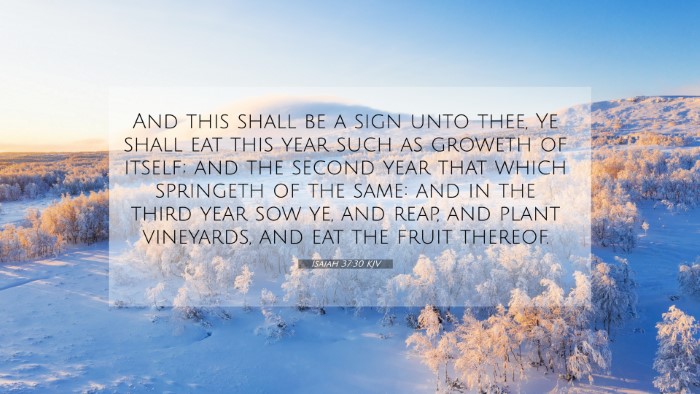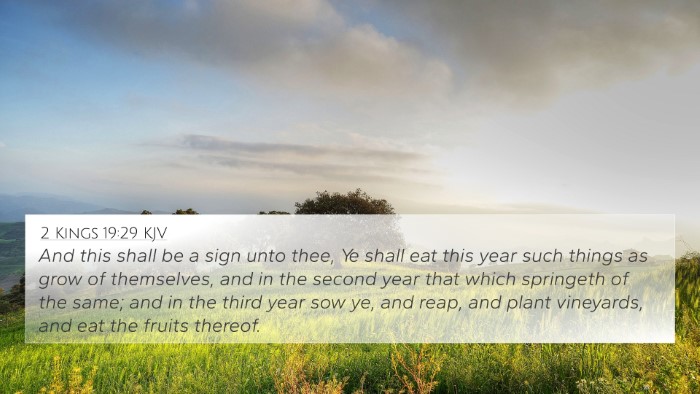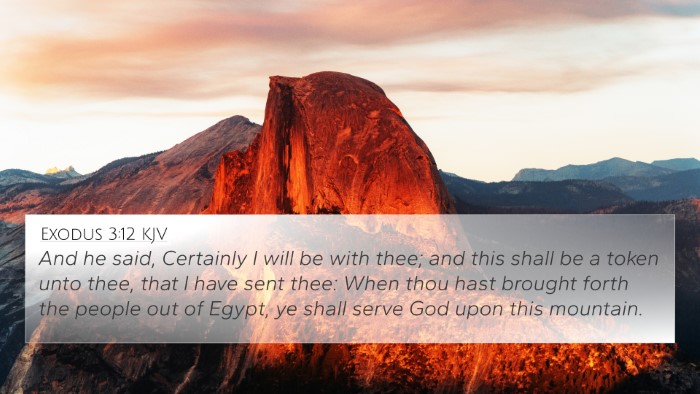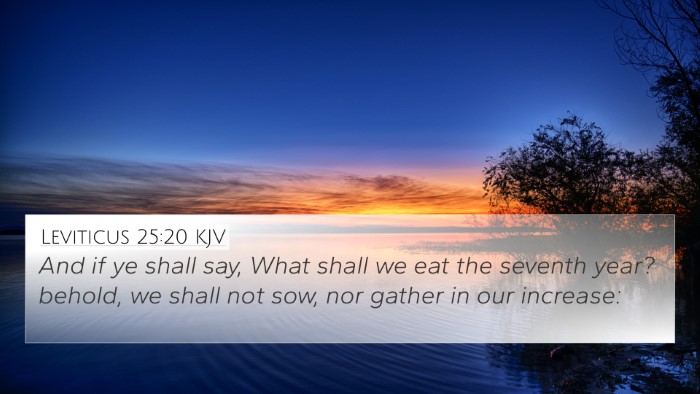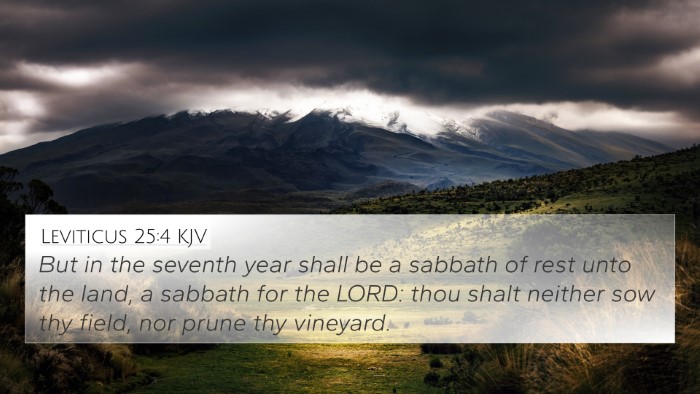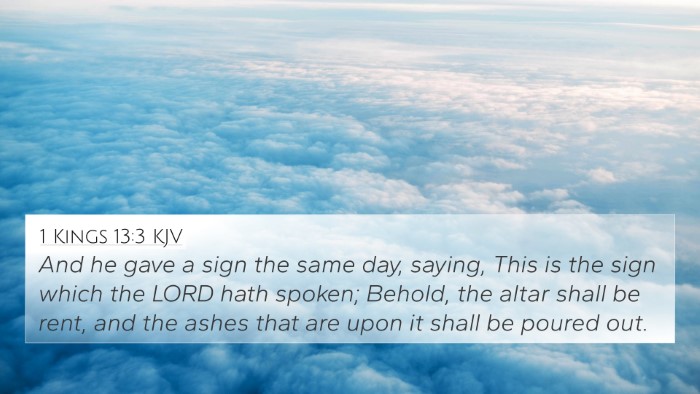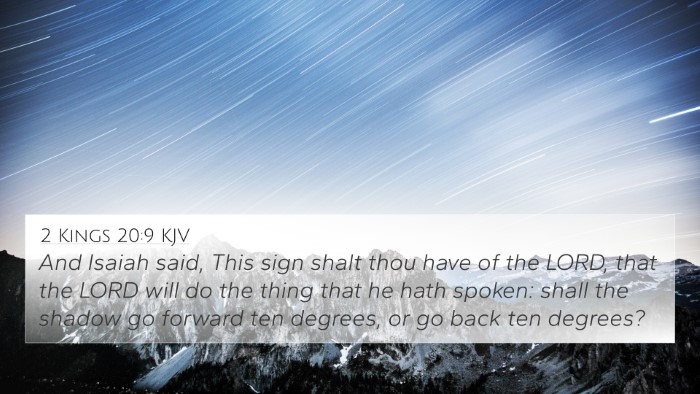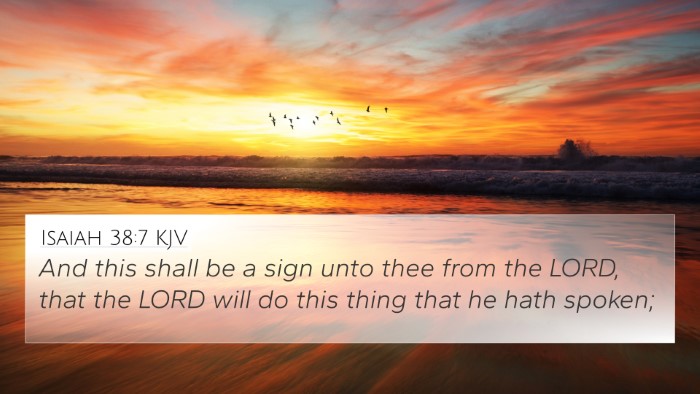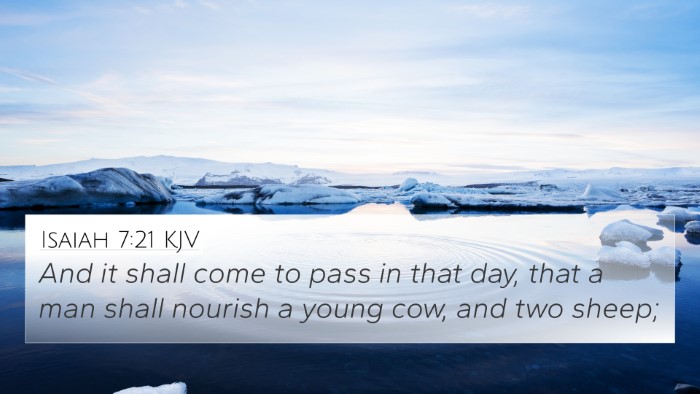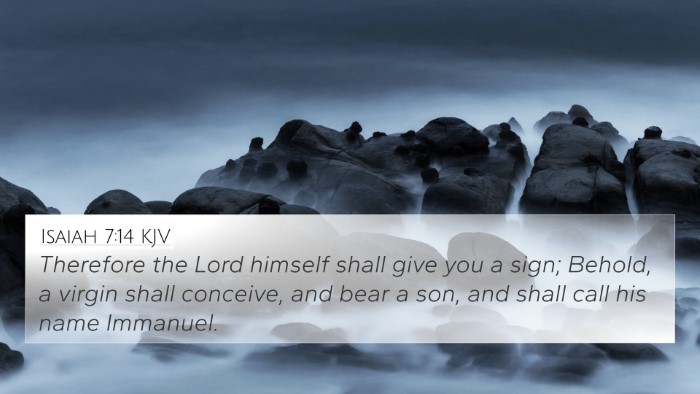Understanding Isaiah 37:30
Isaiah 37:30 states, "And this shall be a sign unto thee, Ye shall eat this year such things as grow of themselves; and in the second year that which springeth of the same: and in the third year sow ye, and reap, and plant vineyards, and eat the fruits thereof." This verse carries profound implications of God's promise and reassurance to His people during a time of distress.
Summary of the Verse
In the context of Isaiah, the verse delivers a message of hope. God assures the people of Judah that despite the impending siege by Sennacherib, they will experience God’s provision. The ease of the harvest in the upcoming years signifies divine intervention and care.
Commentary Insights
-
Matthew Henry: He emphasizes that God's promise here highlights His grace in providing for His people amid trials. The verse serves as a reminder that even when circumstances seem dire, God’s provision will manifest in unexpected ways.
-
Albert Barnes: Barnes notes the agricultural imagery used in this verse. The first two years of consuming wild produce illustrate that God can sustain His people without ordinary methods - a sign of divine sustenance during a time of crisis.
-
Adam Clarke: Clarke points out the significance of planting vineyards and reaping results in the third year, indicating that restoration will follow. He highlights the timeline as not only a promise of sustenance but also a message of future blessings and productivity.
Thematic Connections
Isaiah 37:30 resonates with several key themes throughout Scripture. This verse can be connected to the overarching theme of God's providence and care for His people, especially during times of adversity.
Cross References
- Isaiah 36:15-20: The threats from Sennacherib are contextualized here, showing the environment of fear and hopelessness that God addresses through promises.
- Isaiah 43:2: This verse assures God's presence during trials, paralleling the assurance in Isaiah 37:30.
- Psalms 37:25: "I have been young, and now am old; yet have I not seen the righteous forsaken, nor his seed begging bread." This supports the assurance of God’s provision.
- Jeremiah 29:11: The promise of hope and future plans for the exiled people correlates with God’s ongoing care, akin to Isaiah’s message.
- Matthew 6:26: Jesus’ teaching about God feeding the birds echoes the importance of relying on God’s provision.
- Luke 12:24: Similar to the previous verse, Jesus explains God's care for creation, reinforcing the theme of divine provision.
- Galatians 6:9: "And let us not be weary in well doing: for in due season we shall reap, if we faint not," links the idea of eventual harvest in God's timing.
- 2 Corinthians 9:10: God provides seed to the sower, much like the promise of abundance in Isaiah, which relates to God's principles of provision.
- Romans 8:32: "He that spared not his own Son, but delivered him up for us all, how shall he not with him also freely give us all things?" reinforces faith in God's comprehensive care.
- Philippians 4:19: "But my God shall supply all your need according to his riches in glory by Christ Jesus." This verse ties perfectly with God’s assurance in Isaiah’s text.
Conclusion
Isaiah 37:30 is a profound reminder of God's faithfulness and provision amid trials. It assures believers that they are not alone in hard times, and that God's sustenance comes in various forms, sometimes in ways we do not expect. Through cross-referencing other biblical texts, we can draw a broader understanding of the themes of hope, providence, and eventual restoration, which are foundational throughout Scripture.
Further Study
Engaging in a Bible cross-reference guide can enhance our understanding of how verses interconnect and support one another. Employing tools for Bible cross-referencing enriches personal study, allowing for deeper insights into Scripture's themes and God's unwavering promises.

